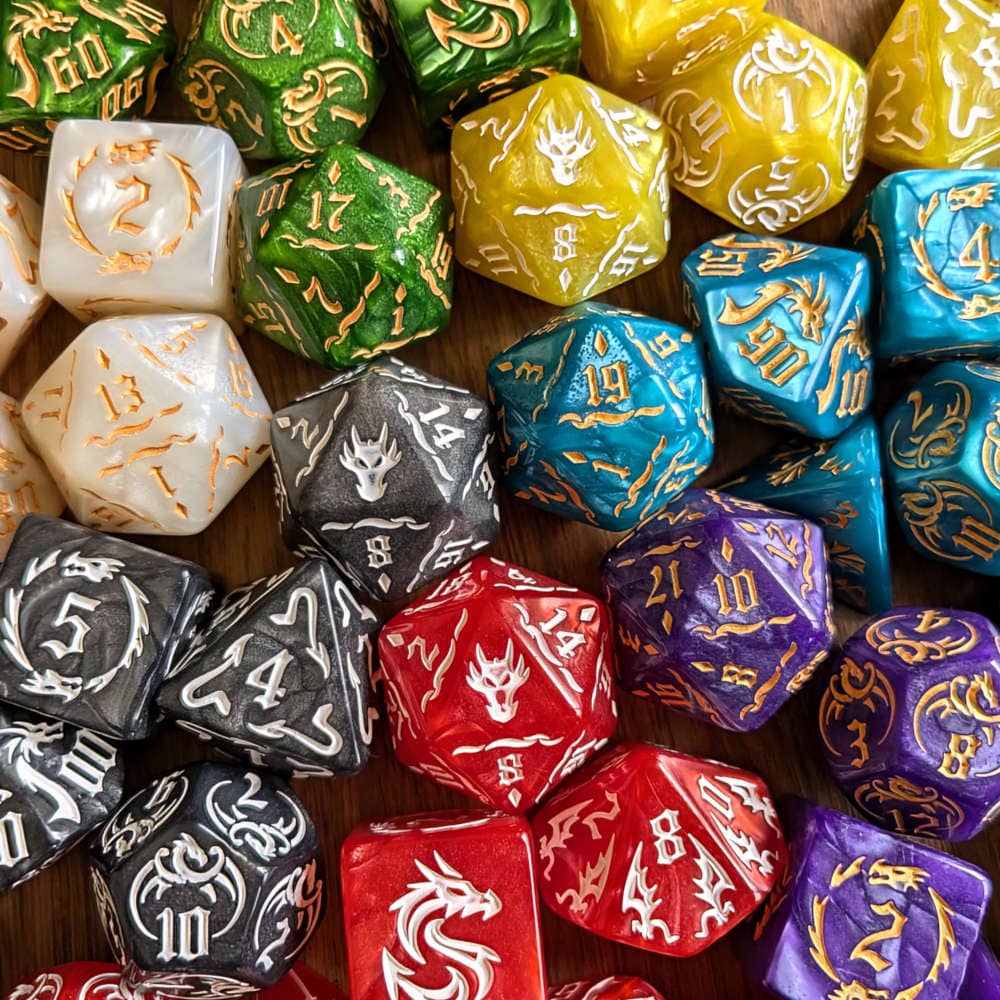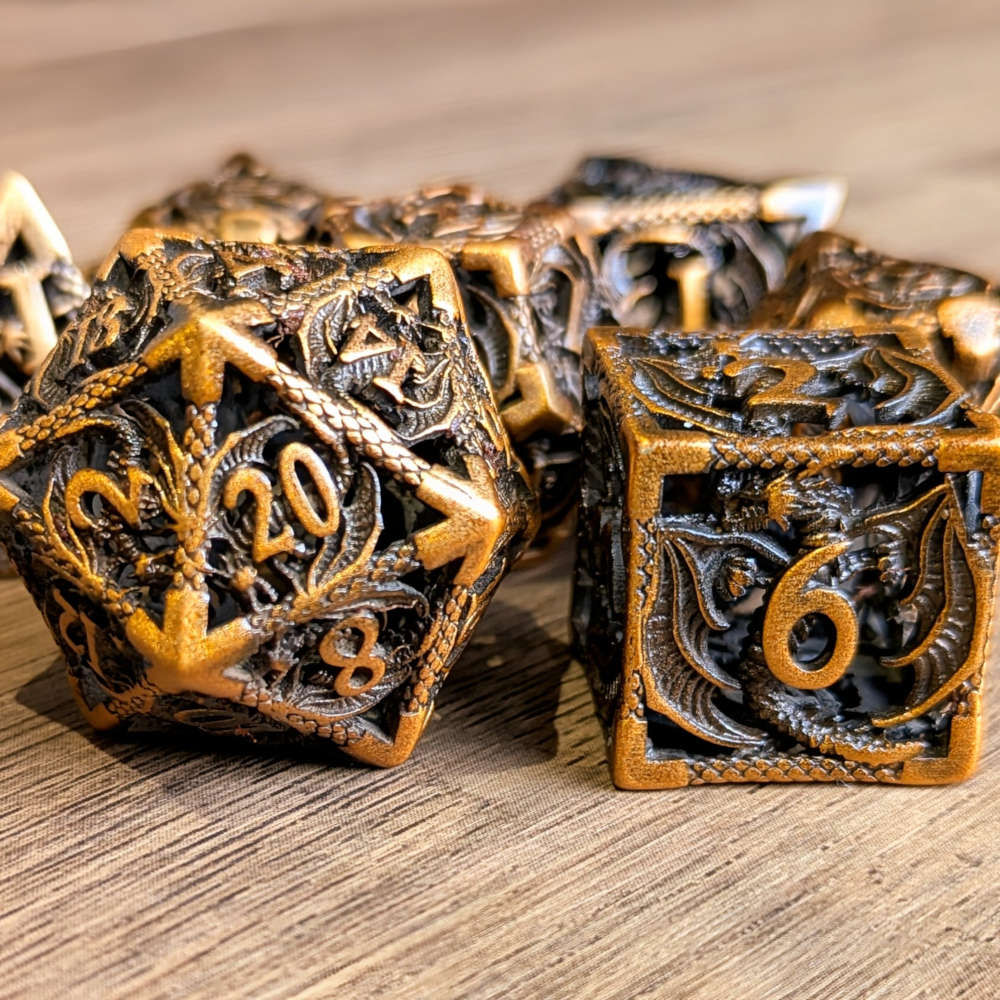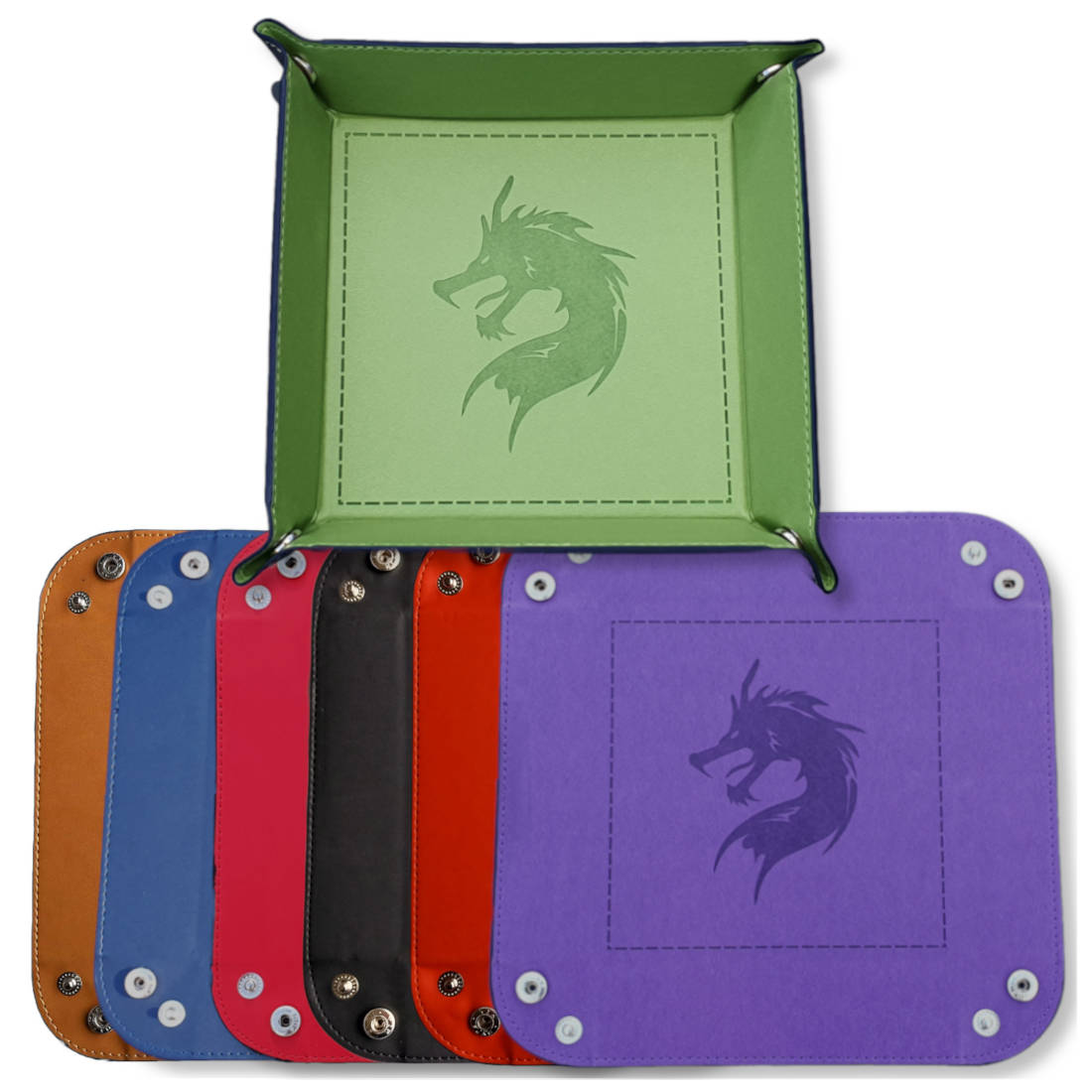How to roll for stats in D&D 5e

In the realm of Dungeons & Dragons, character creation is an exciting step that lays the foundation for your epic adventures. One crucial aspect of shaping your hero or heroine is determining their ability scores: Strength, Dexterity, Constitution, Intelligence, Wisdom, and Charisma. These attributes influence everything from your character's combat prowess to their problem-solving skills.
Character creation in D&D 5e offers a variety of methods for generating attribute scores, from point buy systems to arrays of predetermined scores. Rolling for stats, however, adds an element of randomness and excitement to the process. In this guide, we'll explore the intricacies of rolling for stats in D&D 5e, helping you create unique and dynamic characters.
What does rolling for stats mean?
Rolling for stats is a method in Dungeons & Dragons (D&D) 5th Edition where you use dice to generate your character's ability scores. It's the rules as written approach for character creation, adding an element of randomness and excitement to the process.
However, it's worth noting that there are alternative methods for generating stats in D&D 5e, such as points-based systems where you have a set number of points to distribute among your attributes, or pre-determined stat arrays where you allocate scores that are already provided.
How do you roll ability stats?
Rolling ability stats in D&D 5e is straightforward. You roll 4 six-sided dice (4d6) and then discard the lowest roll. This process is repeated until you have six numbers, which you then allocate to your six abilities: Strength, Dexterity, Constitution, Intelligence, Wisdom, and Charisma.
For example: you roll 4d6 and get the numbers 1, 3, 4, and 4. You drop the 1 because it's the lowest. Then you add together the remaining three dice, which are 3, 4, and 4, resulting in a total of 11. This process is repeated until you have an array of six numbers.
On average, using this method, you can expect each ability to fall between 11 and 13. This variety can lead to characters with diverse strengths and weaknesses, which adds depth to the role-playing experience and offers unique challenges and opportunities during gameplay. The randomness of rolling can result in characters who excel in unexpected areas, adding a layer of unpredictability and fun to your D&D adventures.
What is the best stat generation method in D&D?
According to a poll on r/DnD, roughly 60% of players adhere to this method, while 25% use a slight variation where they reroll 1s. This modification increases the average stats a bit, making it a bit more generous.
The best stat generation method in D&D ultimately depends on your preferences as a Dungeon Master and the desired power level at your gaming table. The rules as written method in D&D 5e is to roll 4d6 and drop the lowest.
Advantages of rolling for stats
- This method follows the traditional rules of the game, adhering closely to the rules as written in Dungeons & Dragons 5e.
- Rolling for stats introduces randomness, which can lead to a wide variety of characters and keeps the game unpredictable.
- Rolling dice for your stats can be exciting, as you might end up with unexpected and exceptional abilities, making your character unique.
- Characters with flaws and quirks from low or high stats can lead to interesting roleplaying opportunities.
Disadvantages of rolling for stats
- Characters might end up with very low stats in their abilities, unintentionally hampering their effectiveness and enjoyment of the game.
- Rolling for stats can lead to significant power imbalances among player characters. This can create frustration within the group if some players roll much better than others.
- Consistently poor rolls can lead to frustration and a lack of engagement, as players struggle to create characters that are enjoyable to play due to their low stats.
- Some homebrew variants of rolling stats, such as rolling 1d20 for each of your abilities, can create significantly strong or weak characters, which can affect enjoyment of the game.
When can you re-roll stats in D&D?
In D&D, according to the rules as written, you can't re-roll your stats. The standard method is to roll 4d6 dice and discard the lowest result, repeating this process several times to generate your ability scores. If you roll exceptionally low, some Dungeon Masters may permit re-rolling your stats as a homebrew rule.
It's essential to remember that re-rolling is not a given; it's a decision to be made by the Dungeon Master. If you feel the need to re-roll your character's stats, make sure you get their permission first.
What alternatives are there to rolling stats?
Some of the most popular alternative ways to generate ability scores in D&D 5e are standard array, heroic array, and point buy.
Standard array
With standard array, you start with a set of predetermined stats: 8, 10, 12, 13, 14, and 15. You then distribute these scores as you see fit among your character's abilities.
For example, if you're playing a rogue, you might allocate your highest score (the 15) to Dexterity and place the lowest score (the 8) in Strength.
The advantage of using the standard array is that it provides a balanced set of scores for your character, ensuring they're not overly powerful in one area and deficient in others. It also means that everyone’s characters are balanced relative to each other, and no one should feel overshadowed.
The downside is that it's a straightforward and fair method, which can be boring to those looking to roll big and play with heroic characters.
Heroic array
Heroic array is a homebrew rule that builds upon the concept of the standard array, offering a beefier set of predetermined stats for your character. In this arrangement, your ability scores are 17, 16, 15, 14, 12, and 10, each number increased by 2 compared to the standard array.
The primary advantage of the heroic array is that it allows players to create characters that excel in specific areas. With a 17 and a 16 in your key abilities, you can have a character who is exceptionally proficient in their chosen skills.
However, this increased power can also be a drawback. Some players might find that characters generated with the heroic array are too strong, potentially unbalancing the game. It's essential for Dungeon Masters to carefully consider the overall balance of the party and adjust challenges accordingly when allowing the heroic array. This homebrew rule can be a fun way to create powerful and exceptional characters but should be used with care to maintain the balance of the game.
Point buy
Point buy is another method of generating character ability scores in D&D 5e. With point buy, you have 27 points to allocate among your abilities, starting with 8 in every stat. This can be a little bit confusing, so we recommend trying out a point buy calculator to see how it works.
The primary advantage of point buy is that it allows players to create precisely the character they envision. It provides a level of control and predictability that rolling or other methods might not offer.
To illustrate how point buy works, let's take an example. If you want to increase your character's Intelligence score from 8 to 15, it'll cost a total of 9 points. This breakdown consists of 5 points for every increase through 13 and 4 points for increasing the score from 13 to 15.
This system allows for the fine-tuning of your character's abilities according to your role-playing concept. However, the disadvantage is that it can sometimes feel less random and spontaneous than rolling for stats. Some players enjoy the unpredictability of rolling for stats and the unique characters it can create.
Roll your stats in style
Roll your stats in style with our dice for D&D. Whether you prefer the classic feel of polyhedral dice or the weighty satisfaction of metal Dungeons and Dragons dice, we've got you covered. Your next adventure begins with the roll of the dice, so why not make it a stylish one?






